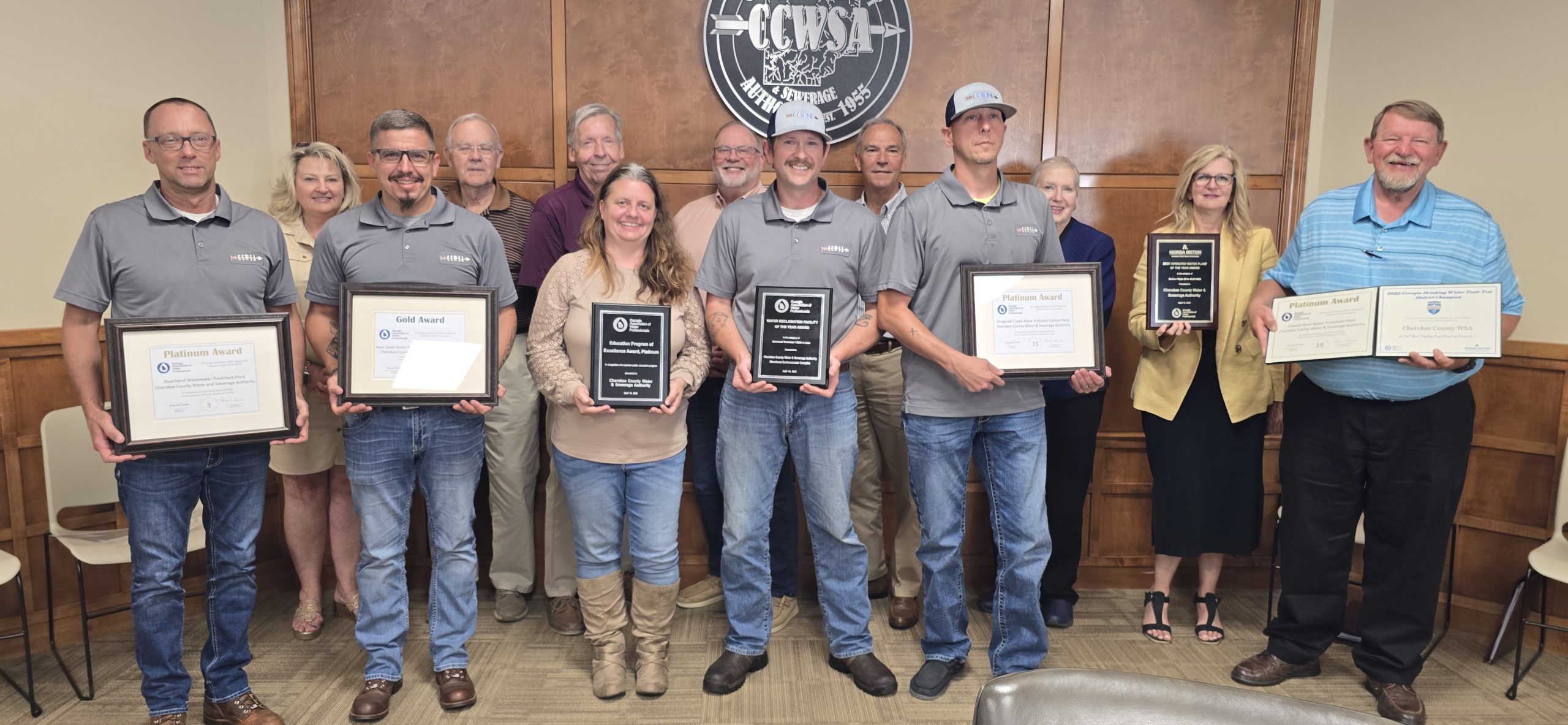Wastewater Facilities Awarded By GAWP
The CCWSA Wastewater Facilities were recently recognized by the Georgia Association of Water Professionals (GAWP). The Riverbend Environmental Complex received the Water Reclamation Facility Of The Year Award – Advanced Treatment 1 MGD or less, the Rose Creek Water Reclamation Facility received the Wastewater Facility Gold Award, the Fitzgerald Creek Water Reclamation Facility and the Riverbend Environmental Complex received the Facility Platinum Award for complete and consistent NPDES permit compliance during the calendar year of 2024. The Fitzgerald Creek Facility has received the Platinum Award 15 years consecutively and the Riverbend Facility 3 years consecutively. CCWSA appreciates the Wastewater teams for all their effort to keep things running efficiently! Congratulations!
- Riverbend Environmental Complex – Gold Award, Platinum Award – Permit Compliance
- Rose Creek Water Reclamation Facility – Gold Award
- Fitzgerald Creek Water Reclamation Facility – Platinum Award – Permit Compliance


